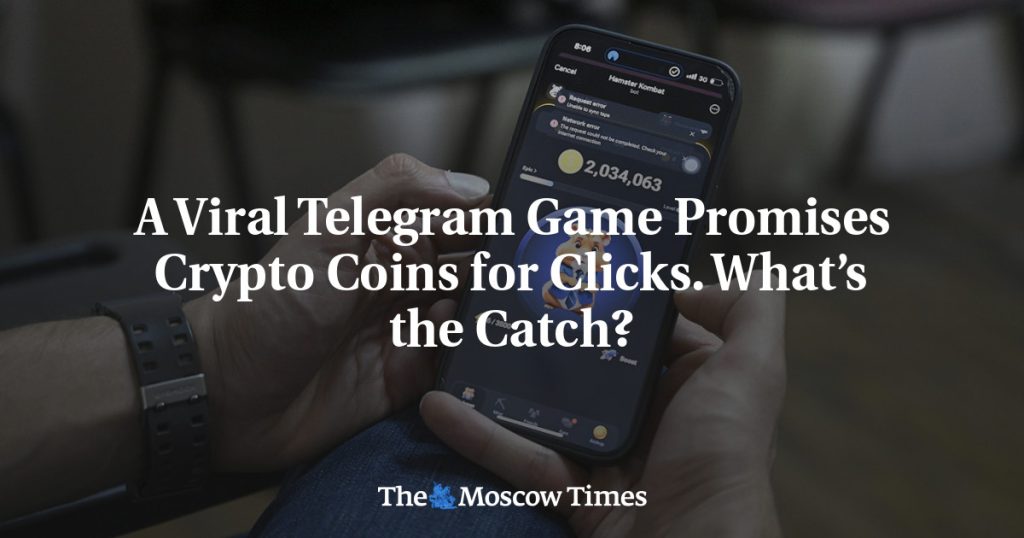Hamster Kombat, a clicker Telegram mini-game that allows players to earn virtual currency by tapping on their screens, has become incredibly popular in the Russian-speaking internet community. The game, which has amassed 200 million users in just a few weeks and runs the world’s largest Telegram channel, has attracted scrutiny from authorities in Russia and Ukraine. Players take on the role of the CEO of a cryptocurrency exchange, tapping to earn in-game rewards, with the expectation that these rewards will eventually be converted into real-value cryptocurrencies.
The game’s launch in March on Telegram has been met with widespread popularity, with players leveling up by tapping on an image of a hamster. The game’s in-game tokens are set to be converted into real cryptocurrencies in July, although details about the conversion process and distribution to players remain unclear. Despite the lack of transparency regarding the game’s developers and cryptocurrency launch, players like Andrei, a video editor from St. Petersburg, are hopeful to make a profit from their gameplay experience.
Hamster Kombat’s origins are tied to Russian entrepreneur Eduard Gurinovich, with possible links to Telegram and its founder Pavel Durov. The game’s success has been fueled by a referral program that encourages influencers like Yevgeny to attract new players using referral links, earning additional rewards through the game. The game’s popularity has surged on social media platforms like Telegram, X (formerly Twitter), and YouTube, particularly in Russia where it went viral in June.
The success of Hamster Kombat is part of a growing trend of “click-to-earn” games on Telegram, following the launch of Notcoin endorsed by Durov in January. Notcoin players received rewards in the form of the NOT cryptocurrency based on their in-game performance, leading to a surge in the value of the cryptocurrency. The integration of these games into Telegram leverages the app’s vast user base and provides a seamless entry point for users into the world of cryptocurrencies, potentially serving as a booster for Telegram’s TON blockchain ecosystem.
Despite its popularity, Hamster Kombat has raised concerns among Russian authorities, who warn of risks associated with the game’s profitability and potential scams targeting users. Ukrainian authorities have also expressed concerns over the game’s alleged Russian roots and the potential collection of users’ personal data. While the game does not require an initial investment, critics argue that it employs manipulative tactics to maintain user engagement and caution against treating it as a guaranteed source of income.
The long-term sustainability of Hamster Kombat and similar clicker games remains uncertain, with experts questioning whether the model is dependent on speculation rather than intrinsic value. Some players like Andrei plan to exchange their crypto rewards for hard currency to make a profit, highlighting the game’s focus on profitability without upfront investment. While the game continues to attract a large audience, uncertainties surrounding its cryptocurrency launch, developer transparency, and potential risks associated with the game’s popularity may impact its future success.















